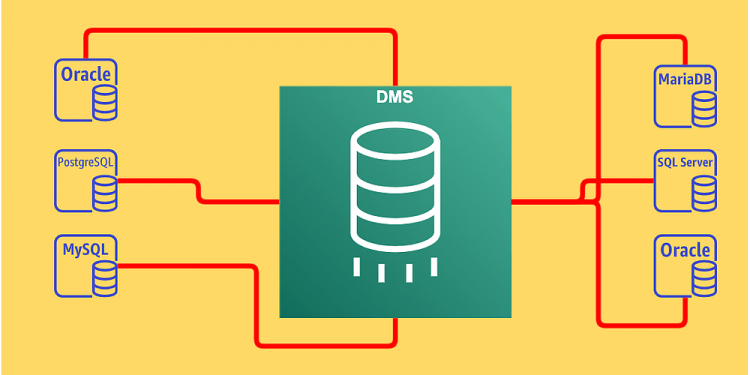Discover the role of AWS partners and their functions in the technology ecosystem. Learn how AWS partners collaborate, offer specialized services, and enhance cloud solutions to drive innovation and success.
In today’s rapidly evolving technological landscape, cloud computing has taken center stage as a fundamental aspect of business operations. Amazon Web Services (AWS), a subsidiary of Amazon, has emerged as a dominant player in the cloud services industry, offering a wide range of scalable and flexible solutions to help businesses optimize their operations. A crucial component of the AWS ecosystem is its network of partners, who play a vital role in assisting organizations to harness the full potential of AWS services. In this article, we’ll explore who AWS partners are and delve into the various roles they play in helping businesses succeed in the cloud era.
As businesses seek to stay competitive and agile, they are turning to cloud solutions to streamline operations, increase efficiency, and reduce costs. AWS provides a comprehensive suite of cloud services, including computing power, storage, databases, machine learning, analytics, and more. While AWS equips businesses with the tools, AWS partners offer the expertise and guidance needed to fully harness these resources.
Understanding AWS Partners
AWS partners are organizations that collaborate with AWS to deliver a variety of services to customers. These services range from consulting and technical support to solution implementation and managed services. AWS partners undergo a certification process that validates their expertise and capabilities in working with AWS technologies, ensuring that businesses receive top-notch assistance.
Types of AWS Partners
- Technology Partners. Technology partners develop software solutions that are integrated with or run on AWS. These solutions cover a broad spectrum of applications, from data analytics and security to DevOps and artificial intelligence. Technology partners enable businesses to extend the functionality of AWS services to meet their specific needs.
- Consulting Partners. Consulting partners offer strategic guidance and technical assistance to organizations during their cloud journey. They help with designing and implementing AWS-based architectures, migrating workloads, and optimizing existing infrastructure. Consulting partners are instrumental in aligning AWS services with business goals.
- Managed Service Providers (MSPs). MSPs take on the responsibility of managing their clients’ AWS environments. They ensure that systems are running smoothly, securely, and efficiently. MSPs handle tasks such as monitoring, patching, backup, and recovery, allowing businesses to focus on their core operations. More on how to pick up Technology AWS Partners in the article: https://www.romexsoft.com/blog/how-to-choose-the-aws-msp-partner/.
Benefits of Partnering with AWS Partners
- Technical Expertise. AWS partners bring in-depth knowledge of AWS services and best practices. This expertise aids businesses in making informed decisions when selecting and implementing solutions.
- Solution Implementation. Partners assist in translating business requirements into viable AWS solutions. They manage the technical intricacies, ensuring seamless implementation and integration.
- Cost Optimization. By leveraging AWS partners’ experience, businesses can optimize their cloud usage, leading to cost savings and improved resource allocation.
AWS Partner Network (APN) Tiers
The AWS Partner Network is structured into tiers, each reflecting the partner’s proficiency and customer success.
- Registered Partners. The entry-level tier with access to training resources and AWS support.
- Select Partners. Partners with more extensive experience and a proven track record of successful customer projects.
- Advanced Partners. Demonstrating higher levels of expertise and broader capabilities across various AWS services.
- Premier Partners. The top tier is reserved for partners with exceptional proficiency and a significant history of customer success.
How to Choose the Right AWS Partner
Selecting the right AWS partner involves evaluating their expertise, relevant industry experience, and alignment with your business objectives.
Collaborating with AWS Partners
- Assessing Business Needs. Identify pain points and objectives to determine the type of AWS partner required.
- Defining Objectives. Clearly outline what you aim to achieve through the partnership.
- Developing Strategies. Collaborate with the partner to create a roadmap for implementing AWS solutions effectively.
Real-Life Examples of AWS Partner Success
Netflix and APN Partnerships
Netflix utilizes APN partners to optimize content delivery, enhance user experience, and ensure seamless streaming.
Airbnb and Cloud Migration
Airbnb partnered with AWS to migrate vast amounts of data to the cloud, resulting in improved scalability and performance.
Future Trends in AWS Partner Landscape
As technology advances, AWS partners will likely play a pivotal role in guiding businesses through emerging cloud trends.
Conclusion
In the ever-evolving landscape of cloud computing, AWS partners serve as invaluable allies for businesses seeking to navigate the complexities of AWS services. By collaborating with AWS partners, organizations can unlock the full potential of cloud solutions while receiving tailored guidance and support.
FAQs
- How do AWS partners differ from AWS support?
AWS partners offer a broader range of services beyond technical support, including consulting, solution implementation, and managed services. - Can businesses switch AWS partners if needed?
Yes, businesses can choose to work with different partners based on their evolving needs and goals. - Are AWS partners certified by AWS?
Yes, AWS partners undergo a certification process to validate their expertise and capabilities. - What is the role of managed service providers (MSPs) among AWS partners?
MSPs take on the responsibility of managing and optimizing clients’ AWS environments. - How can businesses determine the right AWS partner tier for their needs?
The choice depends on the complexity of the projects and the partner’s proficiency across AWS services.
Follow Techdee for more!





